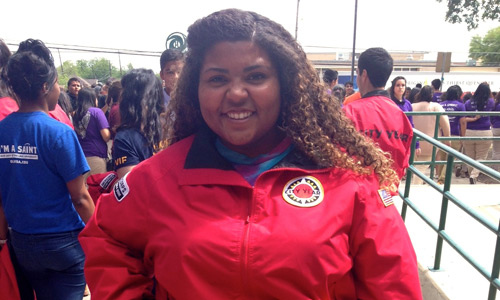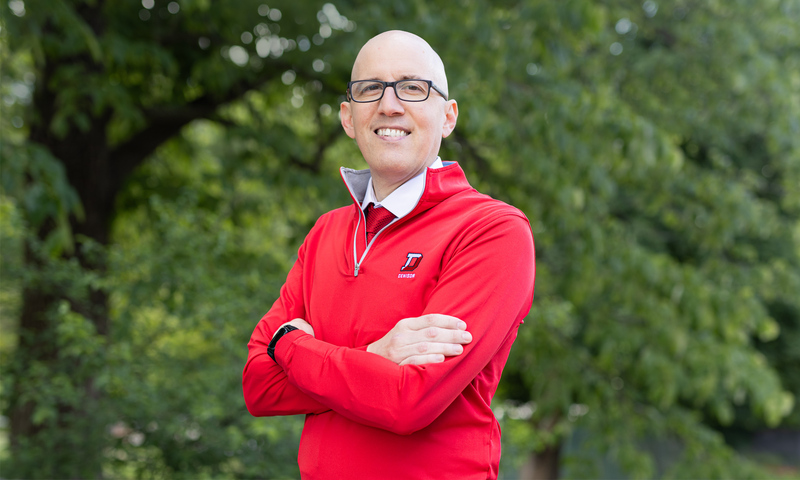When Katrina Tijerina graduated from Denison in 2013, she wasn’t quite ready to move forward to law school, but she was more than ready to make a difference. So when the Wisconsin native learned about the City Year Program, a national organization with more than 17,000 members who tutor at-risk children to greatly improve their chances of graduation, she knew she had found her calling—at least for the next 10 months.
Tijerina wanted to work where she was most needed, and that turned out to be a long way from home, at Sam Houston High School in San Antonio, Texas. Tijerina tutors and mentors students in ninth grade English classes. And to say this has been an eye-opening experience is an understatement.
She tells the story of one of her students, a 15-year-old with a third-grade reading level. “Rosita” was operating at a constant high-pitch. Her reactions to obstacles, including her frustration at not being able to read well, would lead her to either blow up in anger or to shut down completely.
Over the weeks and months Tijerina worked with her, Rosita began to slowly open up and share her personal challenges. Tijerina was able to help Rosita learn ways to manage her anger, and to understand what more appropriate responses to that anger would look like. Rosita now has strategies that allow her to cope with her frustrations. She participates in her classes and is learning and taking in information, not shutting down from humiliation and anger.
“It is so humbling to see them come to trust us,” says Tijerina. “These students come from extreme poverty, their average household income level is $9,000 a year. Gang warfare is a daily reality and the population has a 40 percent mobility rate—which means that in any given year, 40 percent of them could be moving to a new school district.”
Tijerina majored in English and became interested in social justice issues through one of her professors, Jack Shuler. “Professor Shuler created a space to engage and talk about these issues without being judged,” she says. “In his ‘Executions in America’ class, we talked about the death penalty and the processes that lead up to it. I learned to think critically, to ask questions about how society operates.”
An internship in Brazil also added to Tijerina’s interest in social justice. “There were so many difficulties that people lived with on a daily basis—it was overwhelming. But what most impressed me was how happy people could be in the midst of utter squalor.”
Now Tijerina looks at her students and wonders at how they navigate their lives through the everyday challenges. “These students face so many obstacles. They may not have parents who understand the value of education. They may not sleep well at night or even have enough to eat. Their stress levels are so high.
“I’ve found that I can help these students find pride in themselves, in their assignments and in their progress. And once they truly understand the importance of an education, they take their work and themselves more seriously.”
Tijerina is still considering law school, but she’s now thinking that she may extend her time with City Year for one more year. She sees that she is making a difference with her students, and that’s something that’s hard to just walk away from.
“I’m seeing flaws in our school systems and how our students are slipping through society’s cracks. When I move on to law school, I know that I want to work for human rights and advocate for people like my students. There are a lot of things that need to change.”

